In pictures: Joey Negro’s North London studio
Renowned producer and DJ talks us through his favourite studio gear.
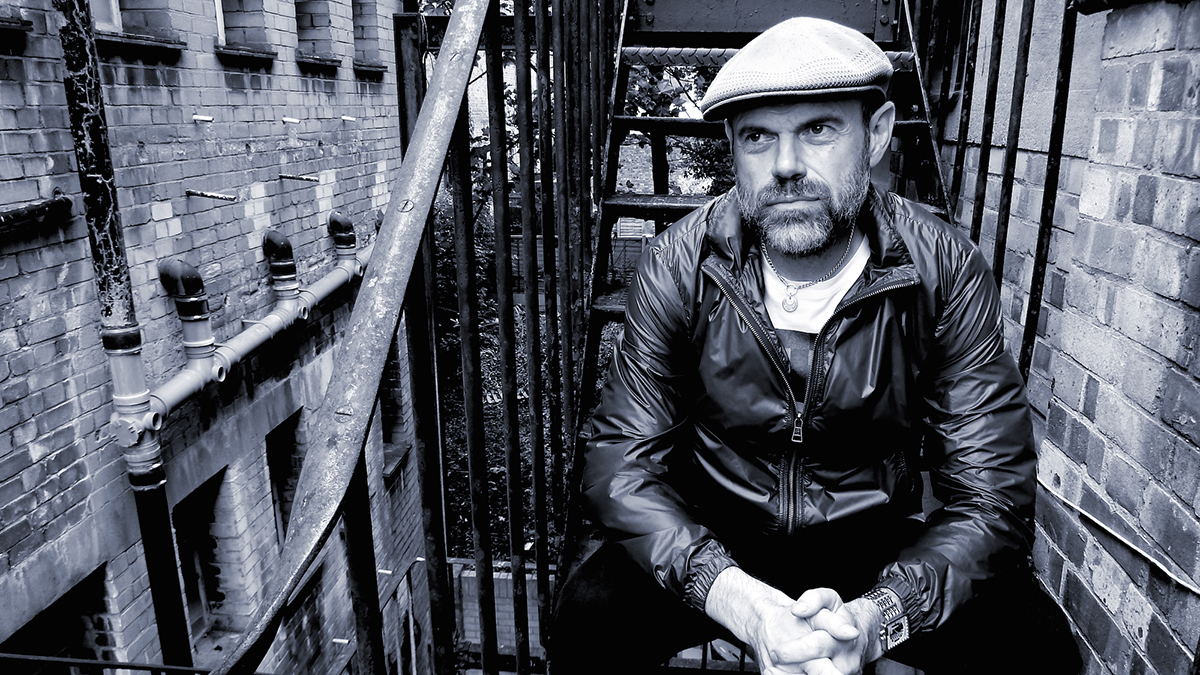
Introduction
Joey Negro’s obsession with dance music began in the late ‘70s, collecting disco, soul and funk records.
He later worked in a record store, before being requisitioned to run Rough Trade’s dance division ‘Demix’. Negro then began his own Republic Records, acclaimed for its compilations linking disco to the emerging house genre.
One of the first to incorporate disco samples into house music when embarking on his own production career in the late ‘80s, Negro has solidified his reputation as a much sought-after DJ and remixer throughout his 25-year career.
In 2007, his career peaked with a Top 5 UK hit under the pseudonym Jakatta and the track American Dream. Presently, Negro continues to release on his own label, Z Records, and DJ globally.
Joey Negro's new album Produced With Love is out now on Z Records. For more information, check out his Facebook and Twitter pages.
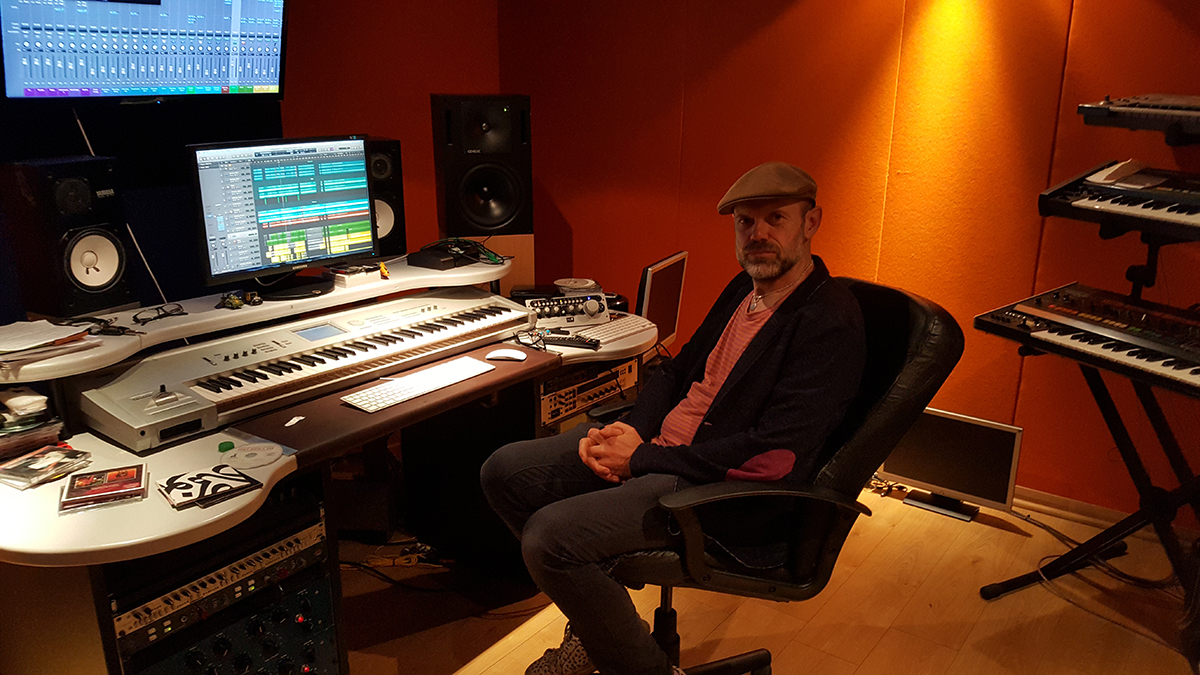
Looking at the long-term
“Thinking about the studios I’ve had over the years, I was renting them in London in the late 80s - normally costing up to £500 a day and often to do a remix.
“I was maybe paid £2,000 for the remix and rented out two days studio time, so I was always covering it, but it got to a point in ‘92 where I just thought I’d be better off taking out a long-term lease.
“The studio I used was called Unit 3 in Primrose Hill, which was a lovely studio with Quested speakers, but I had to find £3,500 a month and take on work that I didn’t really want to do.
“I did that for three years and rented out another place near Essex Road, which was worse but much cheaper. During that time, I started having a bit of success with Jakarta and American Dream, so I came across this place in Crouch End.”
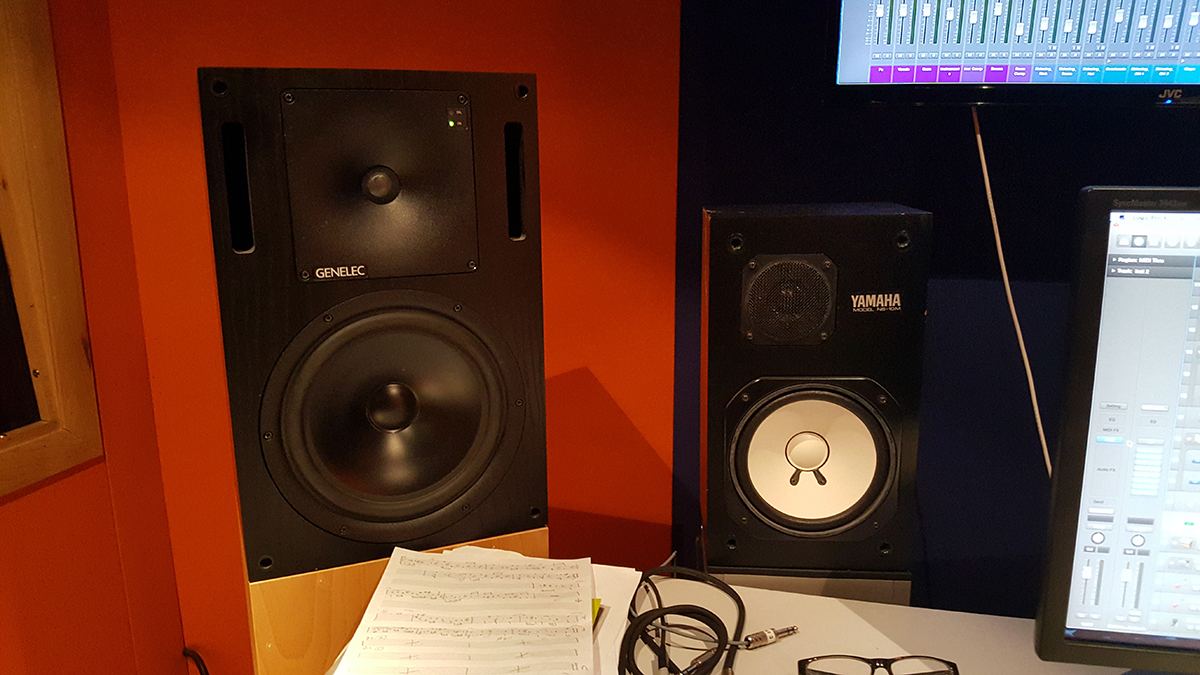
Genelec + Yamaha NS10 speaker monitors
“Genelecs are quite flattering, but the key for me is to listen to your stuff on as many different speaker systems as possible.
“Although I listen to music on laptops occasionally, if I really like something I’ll buy it and listen to it at home, so my main priority is whether something sounds alright in the car, the studio or when I play it out at a club.
“With speakers, it’s a question of knowing the speakers and listening to your music in a different environment. If I play it out, it will be immediately apparent if it’s too toppy or bassy.
“I use the PAZ Analyser in Logic Pro to give me some idea about whether the bottom end is in the right area and I’ll switch to the NS10s just to swap things over for an hour or two.
“If I’m doing something a bit more anal, like cutting up a drum loop or overlaying snares, I would normally have it quieter on the NS10s because they don’t sound very nice loud, but if I’m trying to simulate the environment in a club or lose myself in the track, I’ll play it louder on the Genelecs.”
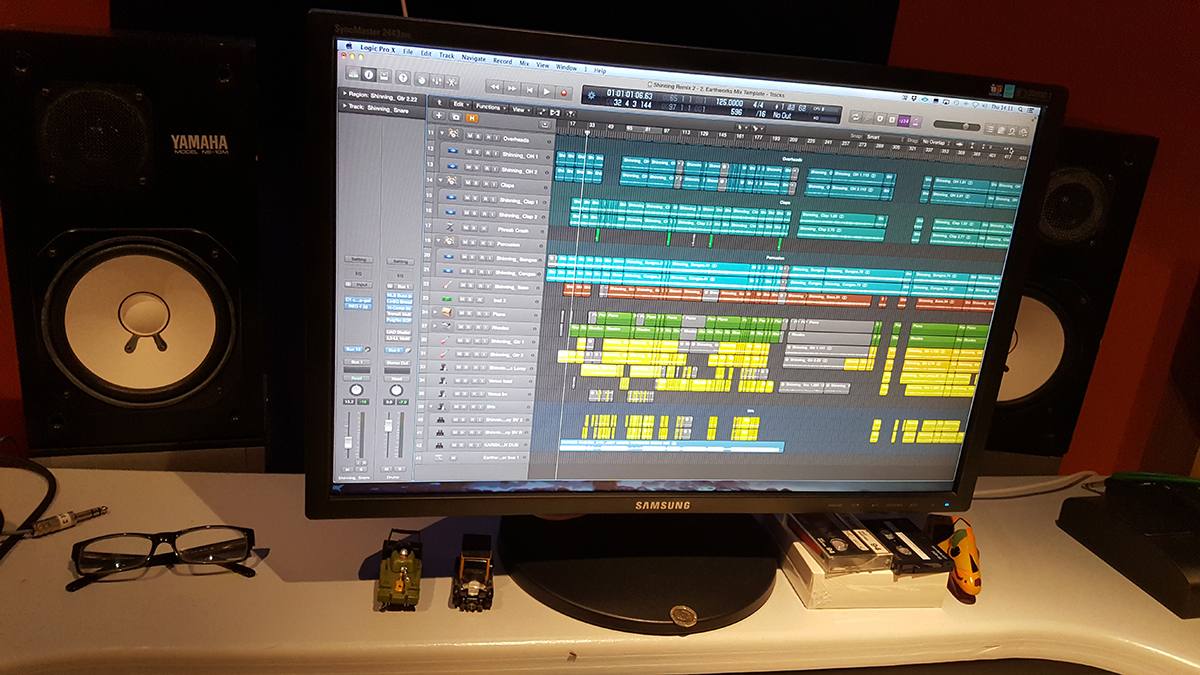
Apple Mac with Logic Pro
“I’ve always used Logic, right back from when it was called Notator, and use Ableton for warping, but the sound quality seems to be worse than Logic.
“I hear other people doing tracks in Ableton or Fruity Loops and it sounds great, so I’m sure it’s just a question of them knowing what they’re doing.
“It’s not that I feel Logic’s been left behind, it’s more popular now than it was in the ‘90s. I’ve built up the plugins, so I’ll use Waves – especially the MetaFlanger, that’s the best phaser/flanger, and a few Universal Audio things for mastering. But I’m not a snob and will use Logic’s internal plugins, like the BPM counter, tape delay or the enveloper, which is really good for taking the attack off things.
“I still use the Korg Triton as my master keyboard, but the pitchwheel’s a bit fucked. I bought it for its sounds, but they’re a bit dated now.
“Sometimes I’ll use Komplete Massive or Arturia software, and I’ll use Sugar Bytes VST plugins for filtering, Camel Fat for effects and Decapitator for dirtying something up without ruining it.
“The Bit Crusher in Logic sounds good, but when you put it back in the track all you can hear is the distortion and not the original sound. Recently I’ve been recording a lot of live bass and guitar or using hardware synths.”
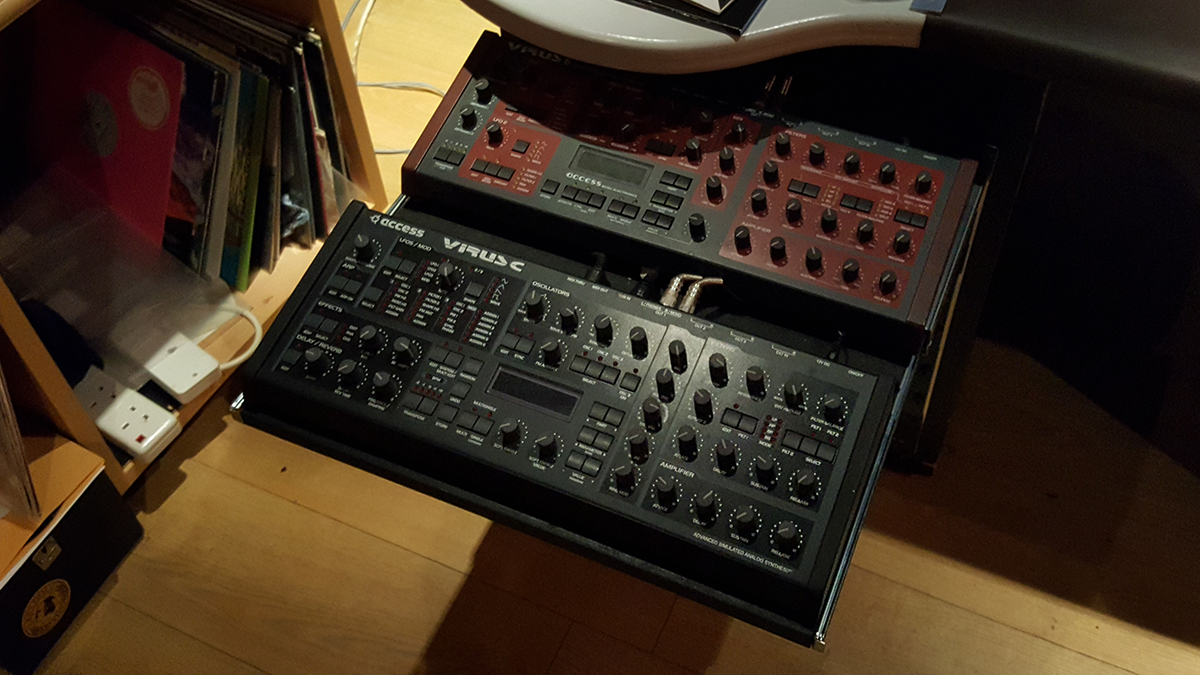
Access Virus B and C
“I used to use these Viruses loads, but I don’t tend to switch them on very often now. I have the Virus B and C, and back in the day when I was doing thinks like Jakarta they had some good sounds.
“They’re quite powerful machines and you can be very hands-on with them; they have a lot of great sounds for pads, leads and bass – and they’re quite intuitive to edit as well. I’ll probably come back to these at some point.”
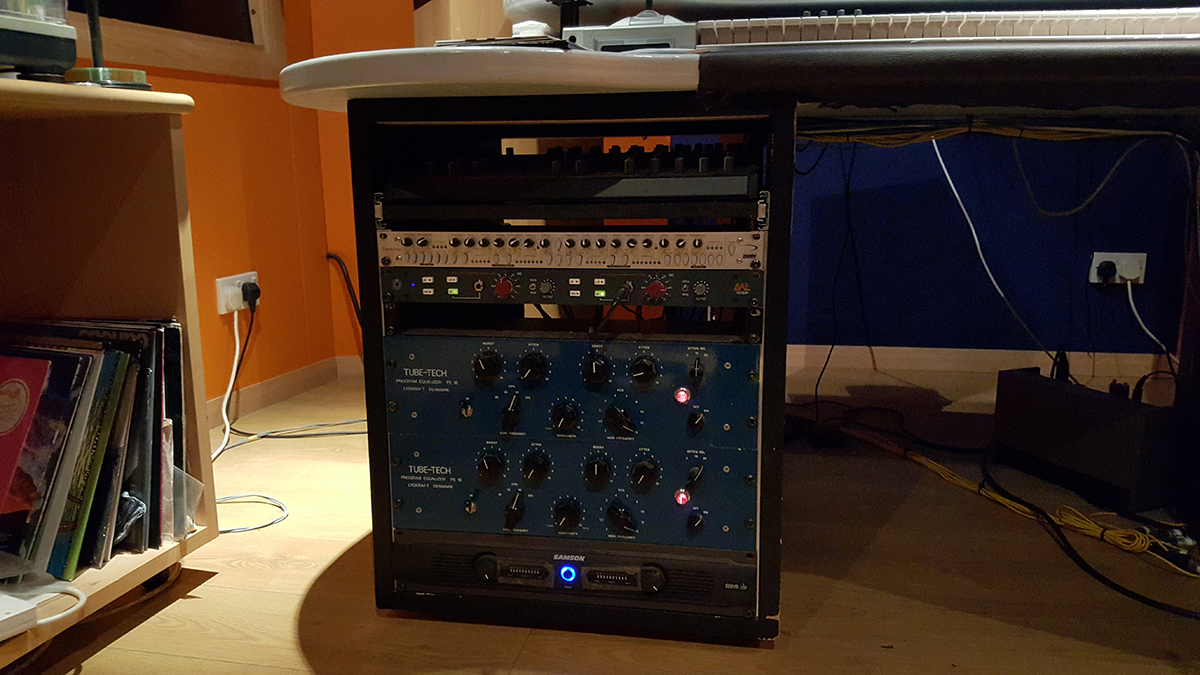
Outboard Rack 1
“Yesterday we were doing an edit of an old disco track. We put it in Ableton and got it in time, but didn’t have the master copy.
“So I got the vinyl and sent it over to my friend Sean P, who’s got this incredibly expensive hi-fi deck and a Cedar system, to get it sounding as good as possible. But sometimes his decks sound quite toppy, so we bounced it through the Tube Tech compressors to warm it up and give it some bottom end.”
“They can be very useful. If I’ve used sounds from the Jupiter-8 but have a couple of riffs from soft synths, I’ll probably bounce it through the Tube Tech four or five times because it just dulls it off and warms it up.
“I’ve got two because they’re mono. I’ll use the BAE 1073 preamp for recording bass, guitar or vocals and the FocusRite Platinum Compounder is also good for boosting bass in a way that gives it a bit more body.”
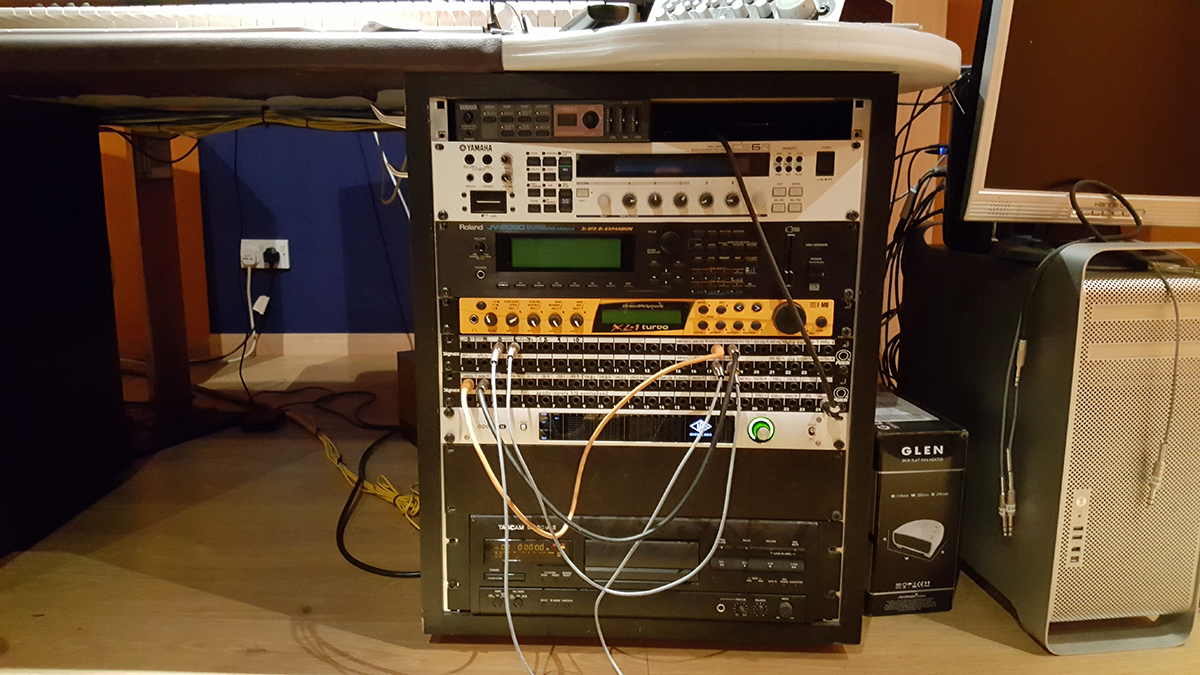
Outboard Rack 2
“The Yamaha P-50 has some good piano sounds and the Roland JV-2080 is quite good for clavs, although there are some really good ones in Native Instruments’ Kontakt too.
“The Yamaha CS-6R is something I might use sometimes for synth strings. You could probably get the same sounds from many other devices, but I’d rather use this than look through a soft synth library. It’s got some of those classic Yamaha bass sounds, like the Lately Bass.
“I’ve still got a DAT player because I’ve got a whole wall of DATs that still need to be digitised.”
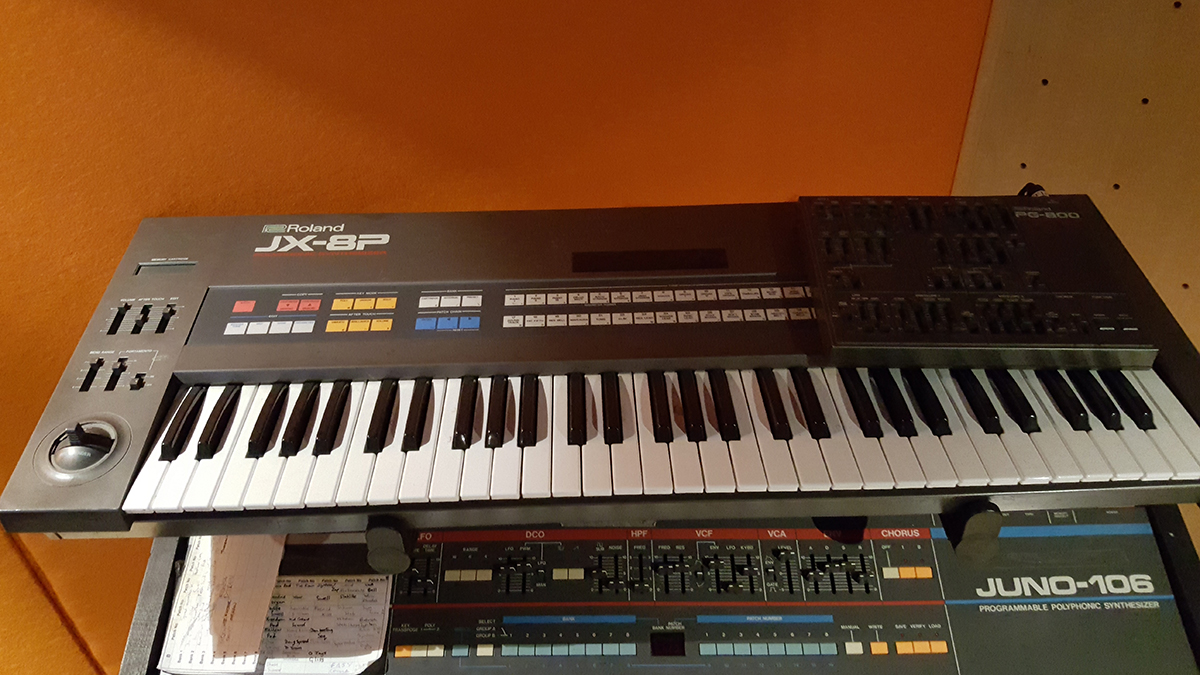
Roland JX-8P + PG-800 Synth Module
“I’ve got the PG-800 editing box for the Roland JX-8P. It’s a separate thing that makes it much easier to edit the keyboard and can be useful if you want to change the release on a sound.
“Sometimes when you start editing, it makes the JX-8P sound more like a Juno, but it’s got some great internal sounds like the Log Drum and some old-school house pianos and synth strings.
“It’s got a nice electric bass sound too. Marshall Jefferson used to use it on a lot of his early productions; I think I bought it after doing a session with him.”
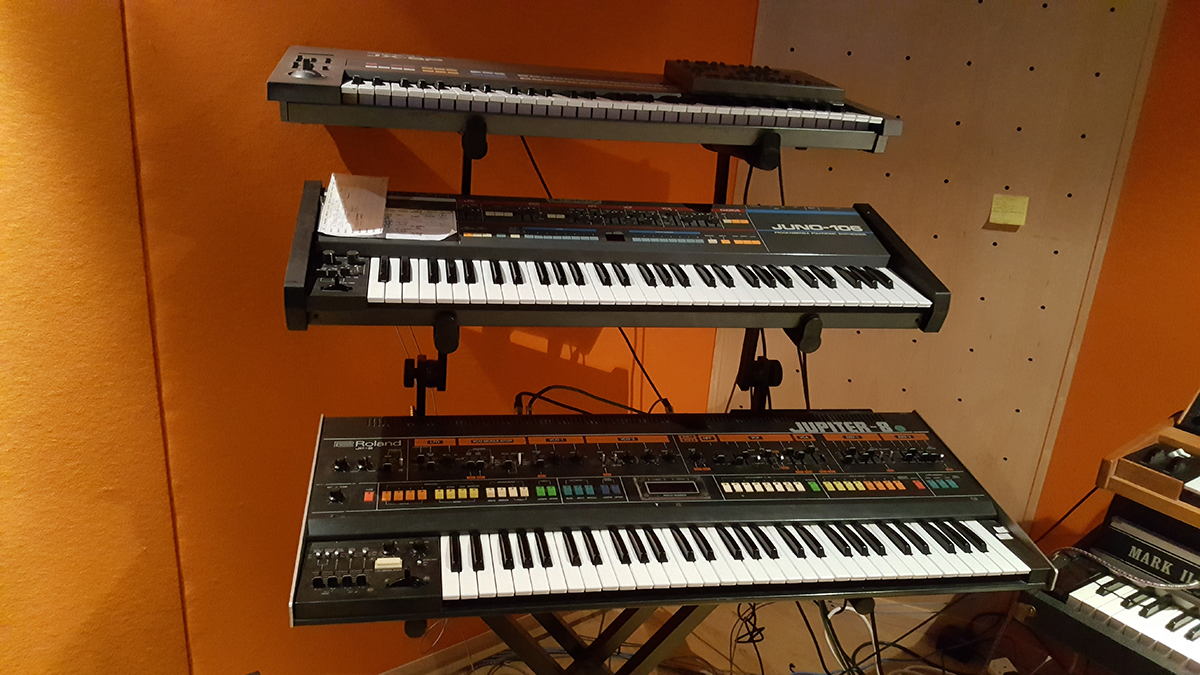
Roland Juno-106 + Roland Jupiter-8
“A guy I work with, Kaidi Tatham, is really good at editing the Jupiter and Juno and coming up with sounds on them.
“When I first got the Jupiter, I was a bit disappointed, but watching him has made me better. It’s probably the best all-round analogue keyboard. It’s easy to edit and you can get nice pads and squelchy riffs. It’s good for leads and not bad for bass, although maybe better for the top end of the bass.
“The Jupiter-8 is a very highly rated synth. I normally start with sound number 11, which is a really good bass sound. You can get some freaky, rich sounds out of it - evolving-type sounds, and once you get your head around it, it’s not that difficult to edit.
“With soft synths, I’m constantly tweaking the sound, but with the Jupiter I’m never doubting it. I’ve got the plugin version, but if you compare like-for-like it’s not as good. Maybe in 10 years’ time, the plugins will be exactly the same, but you can’t change the release and cut off at the same time with a mouse.”

Minimoog Voyager + Fender Rhodes
“I bought the Voyager about two or three weeks ago and haven’t really used it yet. I wanted to have a Moog for bass and didn’t want to hire one.
“I do have a Sequential Circuits Pro One next door, which I used for bass sounds, but it keeps breaking down and the keys get stuck. The Minimoog Voyager would sound much more similar to the original Voyager than a soft synth version of it, and it’s great that so much of it’s MIDI.
“I use the Rhodes quite a lot. 95% of the time, even if I put chords in on the MIDI Rhodes, I’ll get them replayed on the proper Rhodes. Again, it’s got more body and a more expressive and richer sound. The Rhodes is a good starting point for an ambient intro that starts tempo-less before overdubbing stuff – it’s a great mood creator!”